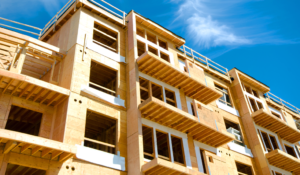Condo Reform Bills Introduced
January 18, 2019
 BIAW has worked diligently over the interim on condo liability reform language with members of the legislature and other stakeholders. SB 5334 and HB 1306 represent that hard work. In addition to condo liability reform, these bills also make technical changes to the Washington Common Interest Ownership Act, which was passed last year and was always acknowledged would need changes.
BIAW has worked diligently over the interim on condo liability reform language with members of the legislature and other stakeholders. SB 5334 and HB 1306 represent that hard work. In addition to condo liability reform, these bills also make technical changes to the Washington Common Interest Ownership Act, which was passed last year and was always acknowledged would need changes.
Thank you, Senator Jamie Pedersen (D-Seattle) and Representative Tana Senn (D-Mercer Island) for working on this key issue. Condos are an important part of the housing market and unfortunately because of the onerous warranties in the state’s condo act – that have proven to be fertile ground for litigation – new affordable condos have virtually disappeared. It’s not because developers do not want to build condos. In fact, BIAW has heard that with real condo liability reform some members believe
they could have a condo project started in six months. It is rather that developers cannot afford the high cost of condo liability insurance and nearly all new condos being built are incredibly high-end high dollar units.
Builders, realtors, insurers, affordable housing and other advocates all agree – Washington needs condo reform to reintroduce condos back into housing markets in Washington. Right now, it is an almost certain guarantee that if you build a condo
project, you will be sued. This makes it difficult for entry and middle markets to produce new condos. In addition, a lack of condo ownership options puts additional pressure on rentals and other homeownership opportunities.
These bills take a surgical, but significant, approach to clarify liability. The largest problem is that a condo association can bring suit if damage “may occur” instead of having a higher burden proof that damage is “imminent or has occurred.” This standard generally means that virtually anything that can go wrong with a unit could give rise to a damage claim, driving up the insurance costs on all projects. Only high-end projects can afford to take the risk. SB 5334 and HB 1306 clarify what a defect claim may be with a definition of damage that requires damage to be significant, be more than technical, and it caused or will cause damage.
Another issue the legislation seeks to address is warranty claims that involve technical violations of building code that does not involve actual damage or poses a danger to occupants. For instance, the building code dictates a nailing pattern and it’s slightly off in a condo unit – that currently is a warranty claim – even though there is no structural damage and the building inspector granted the unit a certificate of occupancy.
Building codes are enforced in the permit and occupancy phase of the project. There should not be another bite from the apple five years later in an attempt to extort dollars. These bills remedy this problem by still requiring that all buildings adhere to the building codes, but requiring the damage to be more than technical.
